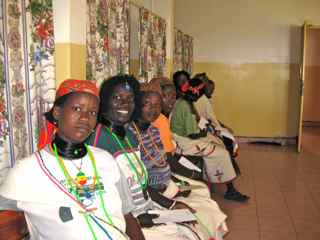 There are unfortunately many hospitals in Ethiopia and in Africa that do not work as expected. They lack staff, or equipment. Often they lack staff doing essential interventions such as caesarean sections.
There are unfortunately many hospitals in Ethiopia and in Africa that do not work as expected. They lack staff, or equipment. Often they lack staff doing essential interventions such as caesarean sections.
Gidole Hospital is a district hospital in south-west Ethiopia. It was a busy mission hospital. When the expatriate staff left, the hospital more or less collapsed. There were fewer patients, and patients had to be transported to a referral hospital for emergency surgery.
Now the hospital works as a rural hospital again. Two dedicated health officers do essential obstetrics, including caesarean sections. They also do essential surgery such as management of fractures, and treatment of severe wounds. These improvements have also brought about other changes: more patients with other diseases use the hospital and patient revenues has increased.
In my definition, a rural hospital should:
- have a good antenatal programme and be able to routinely do emergency obstetrics, including caesarean sections
- be able to handle wounds and common fractures
- be able to diagnose and treat common infections in paediatrics and internal medicine
- should have tuberculosis and ART programmes
- have a good relationship with the population in its catchment area
The hygienic standard at the hospital is acceptable. The floors are often washed, and the patients receive clean bedclothes. In addition, the hospital should be able to make enough income to sustain work and keep staff.
Gidole Hospital does not have a doctor now. It works adequately with non-clinician physicians.

